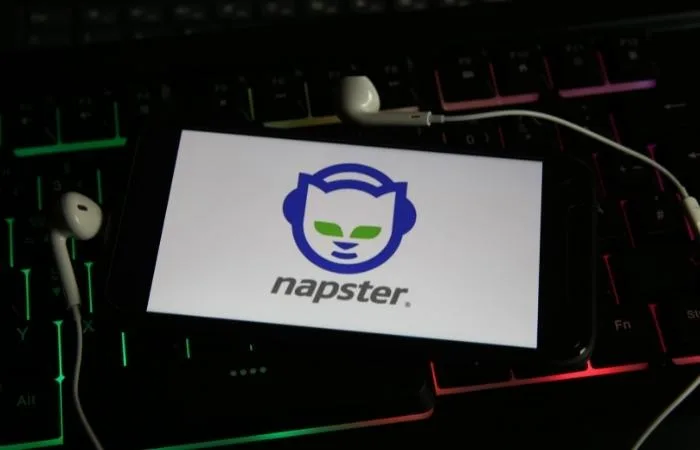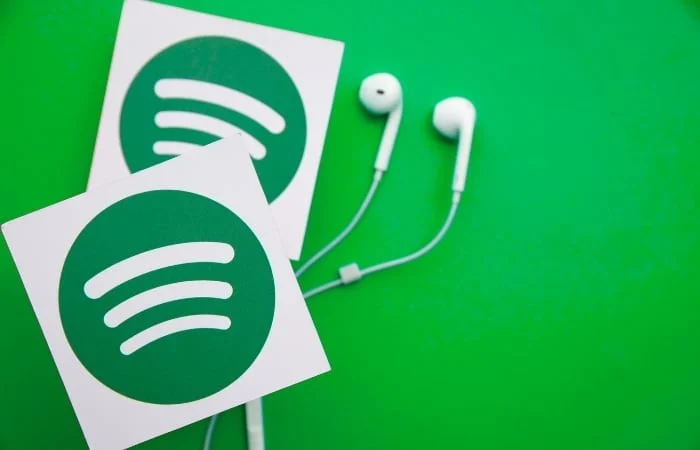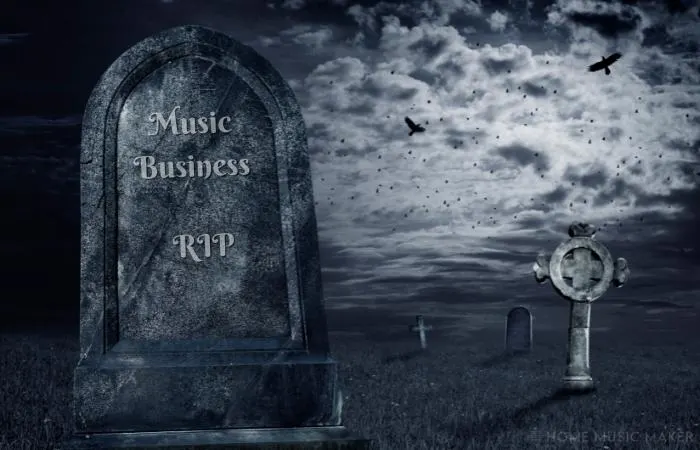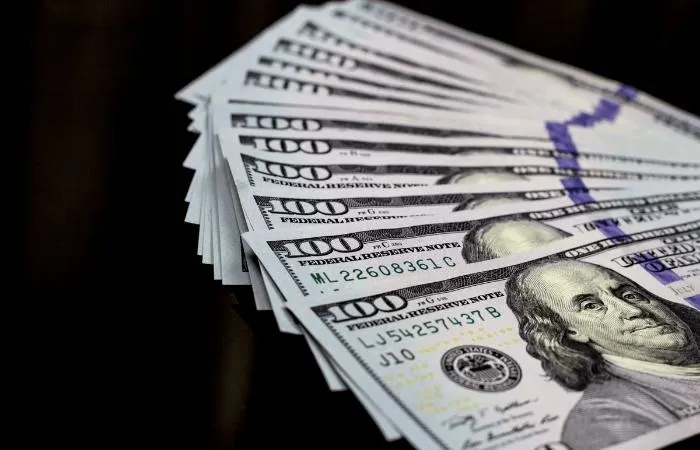The music industry has become infamous for its lack of respect for the people that make it all happen – artists. One can argue that it has never been more challenging for up-and-coming musicians to make a living thanks to the bad business practices of record labels. Consequently, the industry almost crashed at the beginning of the century.
Getting a record deal used to be the thing most musicians dreamed of. After all, you were sure to get your ticket to a comfortable lifestyle, recognition, and artistic fulfillment.
However, record deals have become an infamous scam that aims to trap artists into slaving away and keeping them in poverty while keeping the illusion of fame and wealth alive.
So, is this actually true?
Are record labels still valuable for today’s business model?
If so, can you still “make it” through the power of a record deal alone?
Let’s dive a bit deeper.
The Problem With Today’s Music Industry

The record label’s reputation has been severely ruined in the past decade. Regardless of that, however, there is an irresistible desire for things to go back to the good old days- you would get signed, get a hefty advance, sell loads of records and tour the world.
Unfortunately, things are not as bright as they used to be.
Unless you are a mega-popular act that negotiates from the position of power, the chances are that you’ll be a victim of the music industry’s vicious game.
On the surface, it’s all made to look flashy, whereas, on the inside, it’s all about how much profit a label can suck out of your art.
The thing is, artists are the most vulnerable people to be taken advantage of. They all share a romantic passion for bringing their work to as many people as possible and would do anything to be able to do it for a living.
This makes them a perfect target to be duped into contracts that transfer most of the money they make into the hands of minorities at the top of the industry.
On top of all this, add that most ambitious musicians who start out very young are not adequately educated or financially stable (they’re all basically broke). You get why it’s not as simple to refuse a shady contract as that’s probably the only option you’re left with.
Celebrity culture doesn’t help either- it just creates an endless supply of people who are more than willing to take your place if you ever decide to pull out of the rat race.
So, how did all of this happen? How come that once a lucrative career path now puts artists into such a tough position?
What Went Wrong

We all hear about the “glory days” of the music industry that happened in the 80s.
While contracts were still not evenly sharing the value artists made (it usually was 85% to the label and 15% to artists), the situation was vastly different today.
Back in the day before the internet, you didn’t have a way to reach a wider audience except to get signed to a major label. So that 15% was much better than keeping all the profits from a small audience, you’d reach on a local level.
Besides, 15% was only referred to the money you’d make from selling records. A much bigger chunk of the profit would be paid to artists from selling out shows and merchandise.
Overall, it was a pretty good deal, and most signed artists could make a decent living for themselves.
The first sign of a coming doom happened in the 90s with the introduction of the internet and websites like Napster, where you could illegally download music for free.
Nothing was exclusive anymore – you didn’t have to pay for a record if you could pirate it for free, and you didn’t have to nervously wait for your favorite music video on MTV.
All of that became obsolete as you could have it all whenever you wanted, thanks to the power of the web.
Needless to say, this was bad for everyone in the music industry as the album sales dropped dramatically. It seemed like the labels would be most severely affected by this new change as artists could still make a living from touring.
And so, we enter the world of streaming services.
How Did Streaming Services Change The Industry?

At first, it seemed like the internet killed record labels. Since most of the revenue that fueled the entire music industry came from album sales, record labels were on the verge of bankruptcy.
And then the streaming came along.
On the upside, most people were not pirating music anymore. The downside- a monthly subscription to a streaming service amounted to a single album price. Hence, less money flowed into the industry.
As record labels were left out of the new business model that had already suffered a significant financial crash, they needed to find a way to make themselves relevant again.
Considering that it was substantially less profitable to be a part of the industry, somebody had to carry the weight of the collapse. Thus we enter the era of rip-off deals.
How The Industry Became Corrupt

Instead of record labels being the ones who would suffer the biggest financial loss, they somehow managed to climb up the business hierarchy again.
And who would become a scapegoat for their new business venture? Artists, of course.
To still make loads of cash, record labels had to come up with a new type of contract in the 2000s. And what better deal there is other than to milk the value artists create to the max.
Instead of making money from the album sales alone (which were severely reduced), record labels found a way to take complete control over artists’ professional lives.
And that’s how “360 deals” came to be.
A 360 deal is probably the biggest fraud musicians are forced to cope with to survive in the industry.
It stripped musicians of their rights and control over their music and careers.
In this scenario, the label gets a cut out of everything you do, and by “everything,” I really mean everything you do in your professional life.
You sell an album, play a show, sell merchandise, host a TV show or even perform in a private event- the record label gets a hefty cut out of everything you do.
And to make matters even worse, record labels decide where you are allowed to perform and under what conditions.
Additionally, there’s no need to state how unfair the distribution of wealth generated through streaming platforms is for artists.
For the whole streaming venture to work, streaming services must pay a tremendous amount of money to record labels to obtain rights for their music.
This, in turn, has a consequence of leaving artists to fend for themselves as streaming revenue is nothing but pocket money – having 250 000 streams a month will pay artists only around $1000!
Two hundred fifty thousand streams are actually quite a lot, and artists with such an extensive fan base are not proportionally paid out. This is even worse for emerging artists who probably won’t see a penny from their 100 or even 1000 streams a month.
Is The Music Business Dying?

As we’ve discussed, things are not looking bright at the moment for musicians and many of the employees in the industry.
The pandemic certainly didn’t help either. The most significant income stream was effectively cut out overnight due to massive show cancelation.
The music business is definitely here to stay.
It’s not realistic to assume that it will just go away. However, more and more musicians are increasingly aware that the lavish lifestyle that used to go with the territory is now pretty rare and reserved for a tiny minority at the top.
As with most other things, the music business has become increasingly decentralized. Many indie labels are at their peak as a result. Sure, Warner Music Group or Universal Music Group are still the ones that push their artists the most and gets them on major world tours and festivals, but the sphere of influence is much more spread out.
Do Musicians Make Less Money Now?

One can say that budgets have been drastically cut across the industry. Musicians are generally paid less, record producers get moderate budgets, and labels make far less than they used to.
Your income as a musician will also vastly vary depending on your act’s status.
Generally, only the “big fish” are still cashing in millions. They can afford the lavish lifestyle closely tied to the profession of an artist.
On the other hand, it’s increasingly more difficult for people to make a living from selling and promoting their music.
That is all old news. However, artists have struggled financially throughout history, and it’s no different nowadays.
What is specific for this current time is that many relatively famous acts struggle to make ends meet either because of the tight contract requirements or the increasingly competitive market.
I was personally shocked when I heard people who fronted some of the more famous metal acts say that being in the band alone is not enough to sustain their career and that each member has a regular day job on the side.
All in all, I’d say that more and more artists have come to terms with the fact that being involved in the music industry is something they do out of pure love and passion for sharing their work rather than being in it for the money.
Can You Still Use Record Labels To Your Advantage?

As we’ve already observed, record labels are here to stay. Their business structure and role have changed dramatically over the years. However, they still have a lot of influence on the audience and event organizers.
And that’s probably their most significant advantage over being an independent artist. People involved with major labels have a massive circle of connections that can be a great push for your music career.
Sure, you can do most of the work yourself. You can spread the work to each band member or form a small team of people you trust to do the promotion, logistics, and everything that comes with building a band into a brand.
But not every artist is willing to treat their art as a business. They’d much rather focus on making their work as best as possible.
Doing all the managing and business stuff is quite tiring and usually takes more time than focusing on making songs.
In this regard, teaming up with a label that doesn’t try to push you into signing a rip-off deal could greatly benefit your career. You can even negotiate a short-term deal to use that time to make contacts that could be useful in your solo venture.
Using record labels as a partner in your mission to make a big name out of yourself is probably a safer bet than giving up all of your artistic integrity in return for fame and fortune that will most likely never come.
For example, many major festivals won’t feature bands that are not signed to a label, no matter how big you might get on your own. You can use the privilege that a record deal gives to build a lasting reputation for you or your band and then use that to further fuel your career on your own.
In fact, many of the world’s superstars are deciding to part ways with their labels and continue with their independent teams. For example, Taylor Swift and Kanye West have recently decided to drop their former labels mainly due to the unfairness they’ve experienced regarding the rights to their music.
And finally, although most of this article was doom and gloom regarding the music industry, you may find label executives that genuinely care for their artists and give them fair treatment.
It all depends on how good you can negotiate a deal and how lucky you can get to find the right people at the right time.
Related Questions
Why Is the Music Industry So Full of Bad Music?
It mainly has to do with the fact that artists have entirely given up their integrity in the hands of label executives who prioritize profits.
What Is Wrong With the Music Industry Today?
The music industry is infamous for mistreating artists and exploiting them to maximize profit.
Does Spotify Hurt the Music Industry?
Although it initially appeared that Spotify would collapse the whole industry, it turned out to be the best thing for record labels and executives to stop people from pirating music. However, artists are the ones who are not getting a fair share of the revenue they produce.
What Is the Worst Kept Secret in The Music Industry?
Probably the fact that all the advances you’ll get are not bonuses. Instead, you’re expected to pay for all the expenses of album production with that money and somehow manage to pay bills with it too.
Why Do So Many Musicians Hate Spotify?
Spotify has a lousy reputation among musicians mainly because of their unrealistic views of how creating music works and for mistreating artists by giving them an unfair share of the profits they make off their music.
What Shape Will The Music Industry take 10 Years from Now?
It’s hard to really tell for sure. Still, I’m guessing that independent record labels will be more popular and have more say in building the music market.
How Much Does Spotify Pay Per Stream?
Spotify pays $1000 for 250 000 streams monthly.
Check out this article for an ultimate guide to surviving the music industry.

 Want to connect with other music producers for help and guidance?
Want to connect with other music producers for help and guidance?
E.S. Capeditiea
Saturday 10th of June 2023
Hello... i have come across this article from searching "I hate the Music Industry." (which i search for often... to seek like minds.)
I am preparing a resurrection to the music industry. Rather than these business executives (whom probably have troubles decerning the difference between Experimental and Avant-Garde) who decide who gets to be famous... It would be the musicians.
We hold the passion, the creative outlets... they hold the our paychecks and ransom us with many factors. Hell some of us can release 20-30 well made and well thought out albums... (looks in mirror.)
Since Mozart... maybe even before... Child Stars would be tossed once they grew up. Because "they are not cute anymore" or what have you. And the opposite reigns true lately... "older? in your 30s? 40s? what? get out of here." Unless you have established your self, in your 20s, and become national... you have very little chance...and this decreases as you age.
There are some substantial composers from the past who have made it later aged... Gabriel Faure' which it wasn't until his 40s. (this was the 1800s...) another is Fanny Mendelssohn... though her's was due to victorian misogyny.
The irony of this all is, that so many people want something different rather than the common hypnotic chord that anyone can use, and sound professional... (among a half dozen other chord progressions, which will inevitably become the new genre... don't believe me? wait 20-30 years from now... if nothing changes...
Pop would have a specific chord progression, rock too... among many other factors.
Classical, will never die... never. Beethoven's (and others) music has survived several wars, several musical evolutions. The Beatles will only last as long as their fans. Same with most pop artists. The classical genius' of yestercentury.., and a few previous centuries... hold more significance than the minimalist lyrical content of today.
Compare any pop song with any Wagner piece... (it is commonly known i do not like Wagner as a person... i like some of his music.) You will notice that it holds more emotion and charm in a Wagner piece than any pop song... including Madonna's Frozen...
The factors that we're angry about; are not the music industry taking money from us... it is that they're trying to make music less important to those who seek it as a cathartic outlet, for those who are inspired to start writing, practicing, etc.
They know that the more listeners they can obtain with the least about of resources, will provide more income... so they tell us these false hopes in inspirational films that say, "you can make it if you don't quit your dreams."
...14 years, a few thousand albums, (including the revisions where i would combine two albums into one... etc.) the failure of obtaining the pulitzer prize for music (this year... it is coined as a prize for creativity... so i composed something creative.) What does the winner sound like? about half the albums i released in 2022... (which was 35 albums ranging from 20 minutes to 50 minutes.) the other half was my experimenting with what i wanted to do for the entry... and yet... there is very little chance you have heard of me... you can search for me... then devote about 40 hours of your time to listen to the music i have released since the pandemic...
yeah, while many people were being crappy and wanting to socialize, i stayed in and perfected my art. What did you do? anything productive?
Hindsight 20/20, most of society could have benefited from my thoughts on how we can progress society as a whole rather than increase levels of misery...
You would think that an reclusive agoraphobic like me would have had the answer on how to manage life being stuck at home... forgive my sudden development here. now to recapitulate. (writing this in sonata form.)
It pains me seeing the world continue to fcck us over... as we know 100% that music can make life so much more colourful... and the music industry is dulling these colours for their own profit.
We as musicians, composers, artists... we have the ability to inspire others to stop using spotify, we have the ability to bring out the darkness of the industry... however... those who try... get shoved under the rug... like my self.
I have plenty of reason to destroy and rebuild the industry... will you help me?